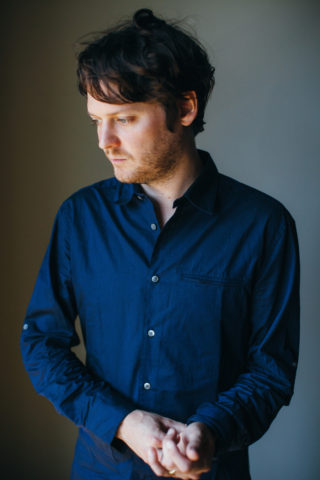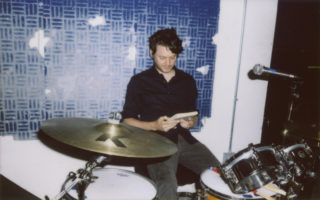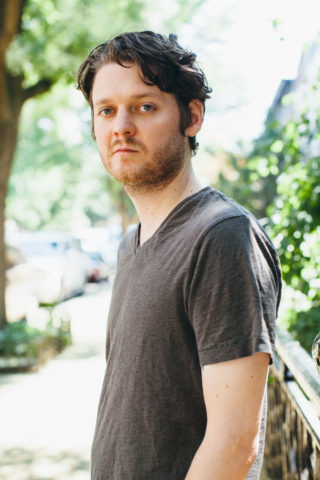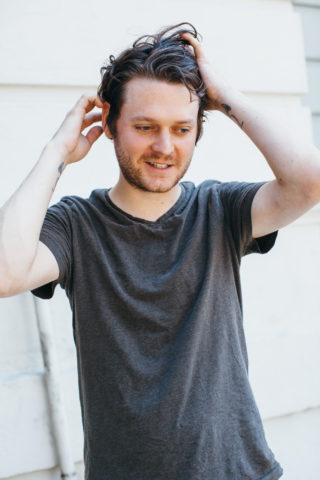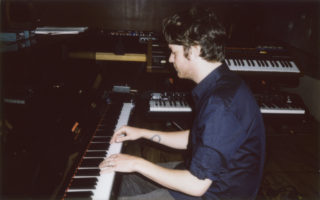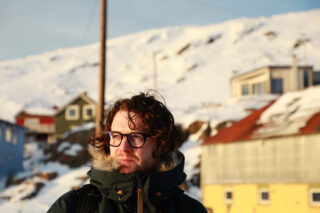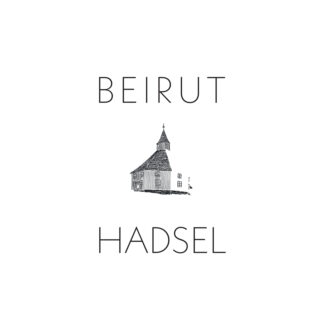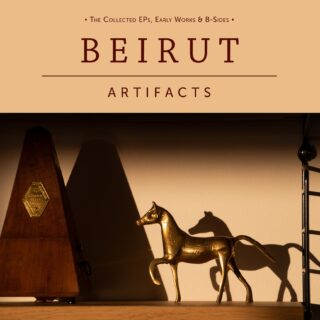“A big thing in my family is architecture,” he continues, “and to be in a place where that’s an actual thing was… Downtown Santa Fe is gorgeous, I should say, but America to me is just this suburban sprawl of nothingness, nothingness, nothingness; everywhere you go feels like nowhere. Suddenly, in the first time in my life, in every direction that I looked there was beauty, and it absolutely blew my mind. There was a guy pissing on the station, asking me if I wanted a ride, and even that was beautiful.”
Condon doesn’t speak rapidly in our morning together, but he enthuses about Europe like he does no other subject. He’s now engaged to a girl from Istanbul, and has spent the last four years visiting Turkey, learning the language and studying areas and maps of the city. He’s modest when I point out how quickly he picked up and replicated the complexities of Southeast European Romani music as a 19-year-old – all those happy squeezeboxes and forlorn trumpets. “I’m just a good parrot,” he insists. “It’s why I’m good at picking up languages and accents and key phrases that make it sound like I know what the fuck I’m doing. And then after that you’re just going to get a blank stare. I still can’t really play that music.”
There are few images more romantic than that of an American in Europe, and even if you take away the melancholic swell of Beirut’s music, he’s still out there doing what F. Scott Fitzgerald and Earnest Hemingway were doing – treading the foothills, tearing up Paris and eventually finding the time to create something that truly justifies their being there. He says that New York is “too fucking necessary” to permanently live anywhere else, but of course it’s the back and forth that’s most romantic of all. “The music scene isn’t like it is here anywhere in the world,” he says, “not LA, not London, and those are the two big gravitational pulls, but we’re right in the fucking centre of it. Always have been, always will be.”
Condon is under no illusion that he’s not a kid from Albuquerque, USA, either. Or at least he isn’t any more. He picked up a trumpet to rebel against his New Jersey-born, rock and pop-loving father, but the records of his childhood home (Bruce Springsteen, The Beach Boys, Motown and doo-wop) have left their mark too, and ‘Gulag Orkestar’’s comparisons to Neutral Milk Hotel were never unfounded or contested by Condon, a fan. When he says: “‘Gulag…’ is this kid’s complete and utter fanaticism of this new style of music he’s just discovered and everything after that is me chilling out and opening up,” or, “[New York] played out like a fucking movie, which is kind of how I’ve lived a lot of my life, and I feel like I’m only just beginning to snap out of it,” he’s pointing to ‘No No No’, an album that might sound less like Beirut to us, but sounds most like him to Condon.
“You have to imagine that where I’ve totally inhabited this fantasy for so long – this otherness – I tend to forget what’s actually there,” he says at one point. And earlier when we discuss Santa Fe: “I think it led to a lot of my ambitions, because it’s a very isolated place. It doesn’t concern itself with the outside world, which is a good thing now, and I fucking love that place to death, but as a kid my ambitions were well beyond my means. It made me struggle to be someone I’m absolutely not, and I tried so hard to do that that I probably confused myself and have been working my way backwards ever since, but the fantasy had become the utter reality.”




